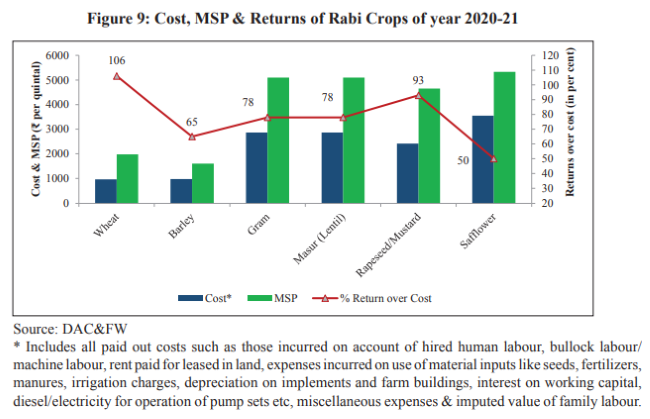
By A Amarender Reddy
India’s fertilizer policy: Indian Farmers Fertilizer Cooperative (IFFCO), the country’s largest fertilizer seller, recently announced a 58% hike in diammonium phosphate (DAP) price. The Union government stepped in immediately to roll back the hike, though fertilizer prices are decontrolled. Fertilizer companies argue that hikes were necessitated by a global surge in raw material costs. Most fertilizers are manufactured using imported natural gas as feedstock.
In the last six months, crude oil prices rose from $40 per barrel to $60 (50% increase). The feed stock and raw materials used by fertilizer industry such as ammonia and sulphur are also costlier by 35%. To recover increased costs, fertilizer companies have no option but to raise prices. But the prices received by farmers their produce like paddy, wheat, pulses and oilseeds have increased only marginally (3-5%). This means farmers cannot afford higher fertilizer prices and any price hike may lead to lower use of nutrients, resulting in reduced yields and profits.
READ I Agrarian crisis: FPOs is the way out for Indian farmers
Fertilizer industry faces high input costs
Since 2011-12, farm input prices increased dramatically — 105% in the case of labour, 142% for bullock labour, and 85% for seeds. Increase in fertilizer prices has been lower at 53%. This is mainly due to fixed urea price at Rs 242 per bag of 45 kg as companies receive direct subsidy. Nutrient-based subsidy scheme for non-urea fertilizers offer a subsidy of Rs 18.90 per kg for nitrogen fertilizers, Rs 15.21 per kg for phosphorus, Rs 11.12 per kg for Potash and Rs 3.56 per kg for sulphur fertilizers to manufacturers, so that they intern sell at lower prices.
With faster increase in input prices and stagnant output prices over the years, terms of trade has shifted against the farmers. Now they are not in a position to absorb any further hike. Price hikes will badly affect fertilizer use, especially among small and marginal farmers and tenant farmers who are facing huge debt burden.

Increase in prices of phosphorous fertilizers and potash has led to lower use of phosphate and potash fertilizers and excessive use of urea. It is reflected in the distorted ration of 6:3:1 for nitrogen (N), phosphorous (P), and potassium (K) as against the recommended ratio of 4:2:1. This adverse fertilizer mix will affect soil health and profitability in the long run. Although fertilizer companies are justified in seeking higher prices, any hike could make the products unaffordable to the farmers. The burden of increased international prices of raw materials has to be borne either by the government or by the fertilizer companies.
READ I Farmers protest: Market-friendly options for ensuring MSP
Promoting efficient use of fertilizers
In an ideal situation, the government has to increase allocation of fertilizer subsidy to keep prices at the current levels. However, some studies indicate that low fertilizer prices are leading to excessive use and distort efficient use of nutrients. To remedy the situation, the government has to adopt a two-pronged strategy.
The first is effective use of soil health card scheme. Under this central government scheme, every farmer receives an SHC once in two years which mentions the soil test values of his field along with recommended doses of different fertilizers along with suitable cropping pattern. The government has to popularise the scheme across the states to reach every nook and corner of the country.
Second, the benefits under the Narendra Modi government’s flagship PM-KISAN scheme of the central government (Rs 6,000 annual payout to farmers) and different state government schemes such as Rythu Bandu of Telangana (Rs 10,000 per acre), and Andhra Pradesh (Rs 13,500 per farmer) and Kalia of Odisha (Rs 4,000 per farmer) needs to be linked to input price index (mainly fertilizers and seed). This will neutralise the burden of increased fertilizer prices on farmers.
(Dr A Amarender Reddy is Principal Scientist (Agricultural Economics) at ICAR-Central research Institute for Dryland Agriculture, Hyderabad.)
